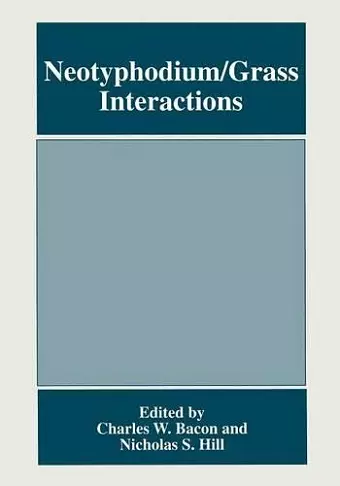Neotyphodium/Grass Interactions
Nicholas S Hill editor Charles W Bacon editor
Format:Paperback
Publisher:Springer-Verlag New York Inc.
Published:1st Jun '13
Currently unavailable, and unfortunately no date known when it will be back
This paperback is available in another edition too:
- Hardback£179.99(9780306456886)

Springer Book Archives
Proceedings of the 3rd International Symposium on Acremonium/Grass Interactions held in Athens, Georgia, May 28-31, 1997Endophytic fungi belonging to the Balansieae tribe were first hypothesized to cause poor livestock performance in 1977 and, in 1980, the association was validated. The fungi were extensively studied and classified according to morphology, their life cycles exam- ined to determine methods to eliminate the fungi in grasses, and practical methods devel- oped for livestock producers to eliminate endophyte-infected plants from pastures and establish endophyte-free plants. Hindsight illustrates how primitive was our understanding of the associations between endophyte, grass plant, and animal. The plant/endophyte asso- ciations, thought to be rare cases, have now been identified in grasses that are adapted from tropical to nearly arctic, and from marshland to desert climatic regimes. In the two decades that have passed since the first endophyte-plant-animal associa- tion was made, the scientific community has re-classified the endophytic fungi twice (now the genus Neotyphodium), ~he systematics and ecological role of endophytes have been more clearly defined, endophytes and grasses are now generally accepted as mutualistic symbionts, the chemistry of toxins and their functions defined, beneficial effects of endo- phytes on plants identified, and commercial ventures have emerged based upon endophyte research in the turfgrass and livestock industries.
ISBN: 9781489902733
Dimensions: unknown
Weight: unknown
452 pages
Softcover reprint of the original 1st ed. 1997